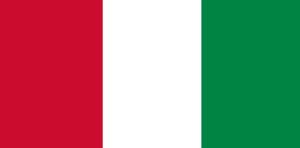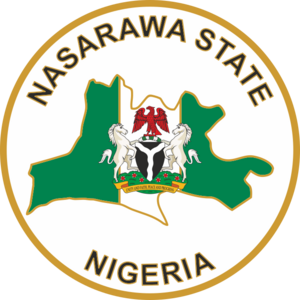Nasarawa State facts for kids
Nasarawa is one of the 36 states that make up Nigeria, a large country in West Africa. Its capital city is Lafia. Nasarawa State was created on 1 October 1996. It was formed from parts of the old Plateau State.
Contents
Discovering Nasarawa State
Nasarawa State is located in the North Central part of Nigeria. It is often called the "Home of Solid Minerals" because of the many natural resources found there. The state shares borders with several other Nigerian states. To the north, it borders Kaduna State and Plateau State. To the south, it borders Benue State and Kogi State. To the west, it borders the Federal Capital Territory (Abuja) and Niger State.
What is the Climate Like?
Nasarawa State has a tropical climate. This means it is generally warm all year round. There are two main seasons: the rainy season and the dry season. The rainy season usually lasts from April to October. The dry season runs from November to March. During the dry season, the weather can be quite dusty due to winds from the Sahara Desert.
Important Rivers and Landforms
The state has important rivers like the Benue River, which flows along its southern border. Other rivers include the Farin Ruwa and the Mada River. These rivers are important for farming and provide water for communities. Nasarawa also has hills and plains, which add to its varied landscape.
A Look at Nasarawa's History
Nasarawa State was created to bring government closer to the people. Before 1996, the area was part of Plateau State. The decision to create Nasarawa State was made by the federal government of Nigeria. This was done to help with development and administration in the region. Since its creation, the state has been working to build its infrastructure and improve the lives of its citizens.
People and Culture in Nasarawa
Nasarawa State is home to many different ethnic groups. Some of the major groups include the Eggon, Alago, Mada, Gwandara, Rindere, and Hausa. Each group has its own unique traditions, languages, and customs. This mix of cultures makes Nasarawa a vibrant and interesting place.
Languages Spoken
While English is the official language of Nigeria and is used in government and education, many local languages are spoken daily. These include Eggon, Alago, Mada, Gwandara, and Hausa. People often speak their local language at home and with friends.
Festivals and Traditions
The people of Nasarawa celebrate various traditional festivals. These festivals are often linked to harvests, historical events, or religious beliefs. They are a time for communities to come together, wear colorful clothes, dance, and enjoy traditional music. These celebrations help keep their cultural heritage alive.
How People Live: Economy and Resources
The economy of Nasarawa State is mainly based on agriculture. Many people are farmers. The state is known for growing crops like yam, cassava, maize, rice, and guinea corn. These crops are important for feeding the local population and for trade.
Natural Resources and Mining
As mentioned, Nasarawa is rich in natural resources. It has deposits of various solid minerals. These include baryte, salt, limestone, and tantalite. Mining these minerals provides jobs and contributes to the state's economy. The state government is working to develop this sector further.
Other Economic Activities
Besides farming and mining, other activities contribute to the economy. These include small businesses, trading, and crafts. Markets are busy places where people buy and sell goods. There are also efforts to encourage tourism, especially to places with natural beauty or historical importance.
Government and Administration
Like other states in Nigeria, Nasarawa State has its own government. The state is led by a Governor, who is the chief executive. There is also a State House of Assembly, which makes laws for the state. The state government works to provide services like education, healthcare, and infrastructure for its people.
Local Government Areas
For easier administration, Nasarawa State is divided into 13 Local Government Areas (LGAs). These LGAs help manage local affairs and bring government services closer to the communities. Each LGA has its own chairman and council.
Education and Development
Nasarawa State is working to improve education for its young people. There are primary schools, secondary schools, and tertiary institutions. These include Nasarawa State University, Keffi, and a polytechnic. Education is seen as key to the state's future development.
The state government also focuses on developing infrastructure. This includes building and maintaining roads, providing electricity, and ensuring access to clean water. These efforts aim to improve the quality of life for everyone in Nasarawa State.
See also
 In Spanish: Estado de Nasawara para niños
In Spanish: Estado de Nasawara para niños
 | Emma Amos |
 | Edward Mitchell Bannister |
 | Larry D. Alexander |
 | Ernie Barnes |



